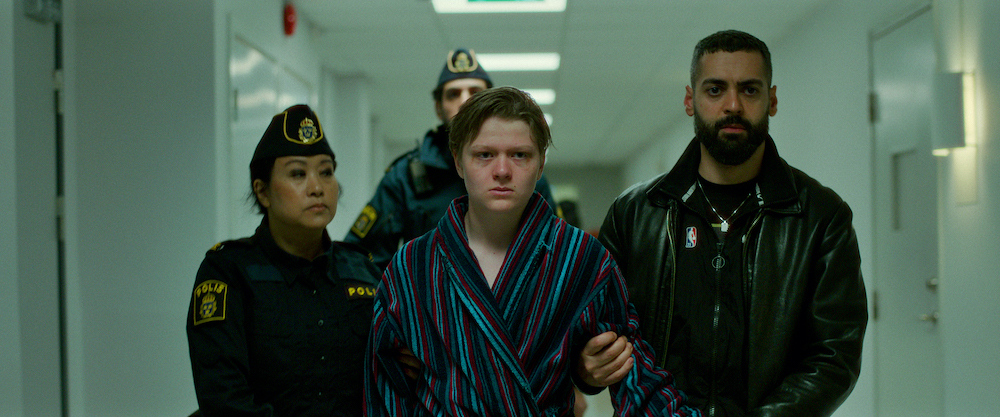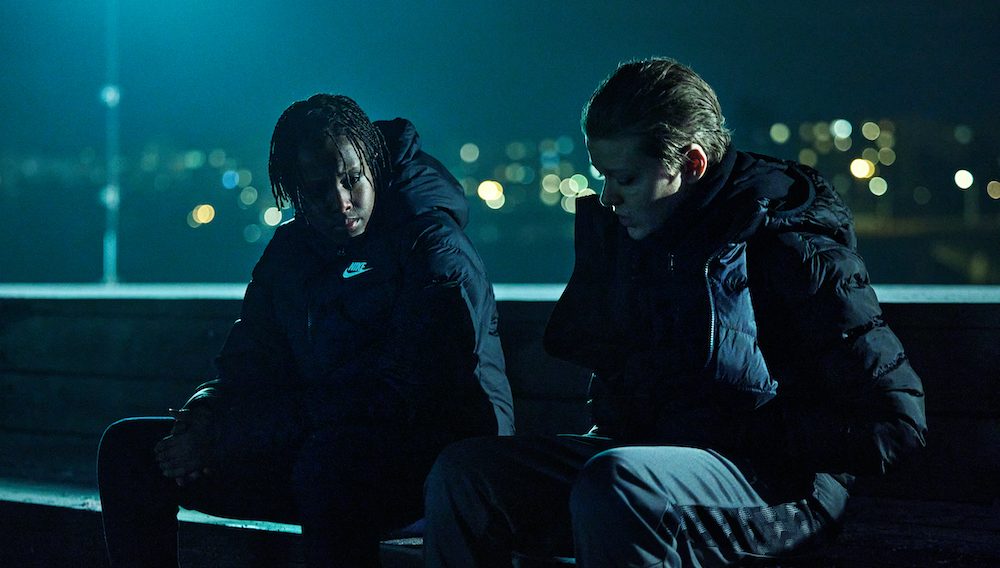Netflix’s ‘Deliver Me’ follows the story of two teenage boys, both living in completely different circumstances, who become each other’s best friends at an early age. Their different paths converge toward the life of crime, which they soon understand is not as good as it appears in the movies or the other places that glorify it. The story begins with a 911 call that reports the shooting of a 14-year-old boy named Bilal. The culprit, shockingly, is his best friend, Douglas, aka Dogge.
As the investigation proceeds, some disturbing things about how the system fails young children come to light. The story goes deep into the examination of the legal and social structure that is provided to the kids and how it all falls terribly short in the bigger scheme of things. The person who came up with the story had experienced the workings of the system firsthand and picked details from real life to craft this fictional tale of two boys.
The Fictional Premise of Deliver Me Packs a Real Punch

‘Deliver Me’ (‘I dina händer’ in Swedish) is based on the novel of the same name by Malin Persson Giolito. The author now enjoys the status of writing multiple bestsellers, but before she took writing as a profession, she worked as a lawyer. It was her experience with the law that allowed her to peek into all the nooks and crannies of how the system works, and with her novel, she wanted to portray “a dirge over a justice system that doesn’t work, that loses big time!”
The story is set in the backdrop of Stockholm, where gangs recruit minors to do their dirty work. This reflects the real problem that Sweden has seen a surge in in the past few years. As depicted in the show, in real life as well, gangs have turned to recruit as young as ten and eleven-year-olds and handed them weapons and explosives. Called “child soldiers,” the kids are sent to do the dirty work, from pickpocketing and shoplifting to shooting someone. What makes the situation tricky for the law and a great loophole for criminals is that people under the age of 15 cannot be prosecuted. This gives the gangs a window to exploit, and impressionable young kids make for easy prey.
These child soldiers are the protagonists of the story in ‘Deliver Me.’ Having worked as a lawyer, Malin Persson Giolito is well aware of this festering problem in the country and wanted to highlight it through her book. She also knew that there was no one way to see this problem, which is why she resorted to different points of view in the story, one of which is Sudden, a shopkeeper who is a repeated victim of having things shoplifted from his store or his store being attacked by kids who belong to one or the other gang. The problem goes unaddressed in real life as well, and Giolito wanted to show how these seemingly minor crimes are what eventually pile up into bigger problems for the kids.

Because her story focuses on such a sensitive issue, she wanted to get all the details right . She read up on the subject as much as she could to ensure that she was in a position to give equal weight to every perspective. She also delved into the research, talking to members of the marginalized communities who have been most affected by the violence. She also talked to police officers who have handled the cases and to the people at the youth homes where the children are often sent. In one of those conversations, she came across people who had been the said “child soldiers” at one point. They told the author about how being in a gang completely changes one’s life, making them so paranoid that they can’t sleep properly unless they are in detention, where they have faith that no one will get them.
This paranoia seeps into the characters of ‘Deliver Me’ and becomes one of the motivating factors that direct their actions. It was essential for Giolito to present this side of the story in a light that made the audience think about all the ethical and moral questions raised with it. Another thing she focused on was the “intrinsic value” of the justice system, where she noted that a guilty person going free is “always less serious than that an innocent person is convicted.” This is another theme that the story explores with a lens that changes according to its audience, leaving different answers for each viewer. Considering all this, it is clear that while ‘Deliver Me’ may be a fictional story about made-up characters, it has very relevant issues at its core, making it a mirror to reflect the real problems of society.
Read More: Netflix’s Deliver Me: Where is the Swedish Show Filmed?


You must be logged in to post a comment.